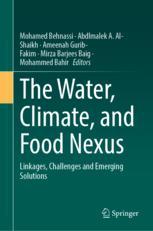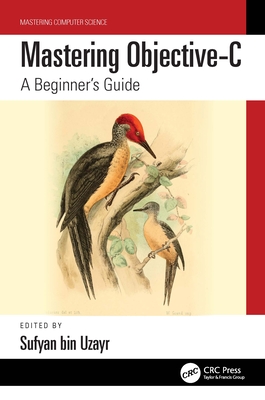图书简介
This contributed book, as a part of a series of CERES publications, provides a multi-regional and cross-sectoral analysis of the interlinkages, challenges, and emerging responses in the areas of water security, climate change, and food systems, especially in a context marked by severe implications of the COVID-19 pandemic, increased climate vulnerability of many regions already water stressed, and an ambitious global action aiming at curbing climate change and restoring ecosystem. In the first set of chapters, the water, food, and environmental/climate security nexus is explored theoretically and by reference to empirical research covering many regions and sectors. In another set of chapters, the impacts of climate change on water resources and water-stressed regions are identified along with their implications for food systems and security. Other chapters of the volume identify the emerging solutions to the nexus challenges, mainly adaptation and mitigation options, governance and management approaches, technological and economic solutions, innovative farming and water management practices, etc. Most chapters scheduled for publication address timely and future-oriented topics, are based on empirical research particularly done in water-constrained and climate vulnerable countries from Asia, Africa, and the MENA region, and provide policy-oriented inputs and recommendations to guide change processes at multiple scales.
Chapter 1 The Water, Climate, and Food Nexus: Linkages, Challenges and Emerging Solutions – An Introduction.- Chapter 2. The Water, Food, and Environmental Security Nexus.- Chapter 3. Water Scarcity, Food Security and Environmental Strategies for Near East and MENA Countries.- Chapter 4. A Political Economy of Water Security: The Case of Singapore.- Chapter 5. Climate Change, Water Variability, and Cooperation Along Transboundary River Basins in Perspective of Indus Water Treaty.- Chapter 6. Comparative Analysis of Water Policy Instruments of Pakistan with respect to Robust Analytical Policy Models.- Chapter 7. The Impact of Climate Change on Groundwater Resources in Northwestern Morocco.- Chapter 8. Impact of Climate Change on Oasis in the Sahelian Region of Northeastern Nigeria.- Chapter 9. Assessment of the Climate Change Impact on the Past and Future Evapotranspiration and Flows from a Semi-Arid Environment.- Chapter 10. Impacts of Climate and Land Use Changes on Water Resources and Food Security of Pakistan.- Chapter 11. Can Crop Water Requirement be Affected by Climate Change.- Chapter 12. Spatial and Temporal Analysis of Groundwater Fluctuations Using Hydrogeological Modeling in Rechna Doab, Pakistan.- Chapter 13. Event-Based Time Distribution Patterns, Return Levels, and Their Trends of Extreme Precipitation: A case study of Indus Basin.- Chapter 14. Food and Water Security through Climate-Smart Agriculture in Asia and Africa.- Chapter 15. The Water-Energy-Food Nexus in Kenya: Climate Change Impacts and Adaptation Strategies : A Review.- Chapter 16. Water Quality and its Health Impact in the Prefecture of Mohammedia, Morocco: A Review.- Chapter 17. Water Management in Pakistan: Challenges and Way Forward.- Chapter 18. Water Resources and Storage Infrastructure to Meet Agricultural, Energy and Urban Needs in sub-Sahara Africa.- Chapter 19. Applications of Smart Agriculture in Irrigation Water Management in Developing Countries: The Way Forward.- Chapter 20. Empowering Climate-Smart Agriculture for sustainable water and food systems in Morocco: Learnings from parcel and watershed-scale studies.- Chapter 21. Climate Change, Salinity and Crop Productivity: Mitigation or Adaptation? Options for Climate-Smart Agriculture in Pakistan.- Chapter 22. High Residual Sodium Carbonate (RSC) Water Stress in Arid to Semi-Arid Climates: Effects and Management in Salt Affected Soils for Mitigating Climate Change.- Chapter 23. Crop Diversification for Improved Farming Resiliense in Degraded and Water Scarce Irrigation Regions.- Chapter 24. A Sustainable Method of Production Towards Food Security Using Aquaponics: A Case Study from Oman.- Chapter 25. Future of Crop Water Requirement in Pakistan Under 1.5 and 2.0 Degree Ambitious Scenarios.- Chapter 26. Managing Agricultural Water Productivity in Changing Climate Scenario in Indo-Gangetic plains.- Chapter 27. The Repercussions of Climate Change on Wastewater Treatment in India and Saudi Arabia its Impact on Food Security.- Chapter 28. Wastewater Reuse for Agriculture as an Adaptation Measure to Water Scarcity and Climate Change: A Case Study of Ain Temouchent, Algeria.
Trade Policy 买家须知
- 关于产品:
- ● 正版保障:本网站隶属于中国国际图书贸易集团公司,确保所有图书都是100%正版。
- ● 环保纸张:进口图书大多使用的都是环保轻型张,颜色偏黄,重量比较轻。
- ● 毛边版:即书翻页的地方,故意做成了参差不齐的样子,一般为精装版,更具收藏价值。
关于退换货:- 由于预订产品的特殊性,采购订单正式发订后,买方不得无故取消全部或部分产品的订购。
- 由于进口图书的特殊性,发生以下情况的,请直接拒收货物,由快递返回:
- ● 外包装破损/发错货/少发货/图书外观破损/图书配件不全(例如:光盘等)
并请在工作日通过电话400-008-1110联系我们。
- 签收后,如发生以下情况,请在签收后的5个工作日内联系客服办理退换货:
- ● 缺页/错页/错印/脱线
关于发货时间:- 一般情况下:
- ●【现货】 下单后48小时内由北京(库房)发出快递。
- ●【预订】【预售】下单后国外发货,到货时间预计5-8周左右,店铺默认中通快递,如需顺丰快递邮费到付。
- ● 需要开具发票的客户,发货时间可能在上述基础上再延后1-2个工作日(紧急发票需求,请联系010-68433105/3213);
- ● 如遇其他特殊原因,对发货时间有影响的,我们会第一时间在网站公告,敬请留意。
关于到货时间:- 由于进口图书入境入库后,都是委托第三方快递发货,所以我们只能保证在规定时间内发出,但无法为您保证确切的到货时间。
- ● 主要城市一般2-4天
- ● 偏远地区一般4-7天
关于接听咨询电话的时间:- 010-68433105/3213正常接听咨询电话的时间为:周一至周五上午8:30~下午5:00,周六、日及法定节假日休息,将无法接听来电,敬请谅解。
- 其它时间您也可以通过邮件联系我们:customer@readgo.cn,工作日会优先处理。
关于快递:- ● 已付款订单:主要由中通、宅急送负责派送,订单进度查询请拨打010-68433105/3213。
本书暂无推荐
本书暂无推荐














